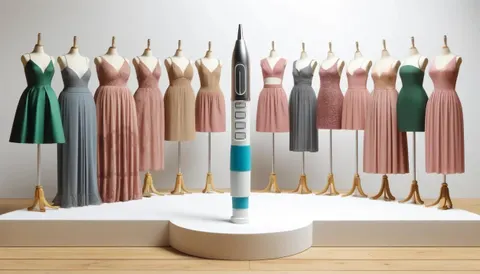
What is Brand Loyalty, and How Can Your eCommerce Brand Solidify It? [w/ adQuadrant]
When it comes to digital marketing strategy for your eCommerce brand, there's no better topic to delve into than brand loyalty. After all, this is the topic that marketers love to discuss on a near-daily basis!
In short, brand loyalty is the combined goal(s), ethos, and values that surround your brand as a whole and inspire your shoppers to become loyal advocates that ultimately help your team accomplish its core mission statement. Brand loyalty is exceedingly important for brands (especially with recently rising CAC) as it's much easier to re-target an existing brand advocate for future sales than to acquire new shoppers continuously. According to Marketing Metrics, the probability of converting an existing customer is 60 to 70%, whereas the likelihood of converting a new prospect, on the other hand, is only 5 to 20%.
Whether it's via product packaging or an outstanding customer service experience, cultivating brand loyalty is a top priority for any successful business, and your brand essence should be present in at least one central area of the work that you do. But enough about brand loyalty as a concept. Let's get into the meat of how your brand can cultivate brand loyalty using some case-by-case examples. As you review these examples, ask yourself – which of these methods aligns best with my digital marketing strategy and the needs of my brand?
1. Establish Brand Ambassadors
The saying "content is king" has never been more accurate in 2022. As your marketing team invests time to generate valuable content, this content is not only beneficial in its own right but is often reshared by related professionals in your field. This process effectively turns a give-back strategy into a brand ambassador strategy.
A noteworthy example of a brand using the ambassador technique effectively is Canva. Their team implemented the #canvalove hashtag to empower users to share what the easy-to-use graphic design platform has helped them achieve. Check out this post and comment thread on Canva's Instagram.
Not only is this 1 million followers post a celebration of social proof (i.e., that Canva is the graphic design platform to use), but it also effectively highlights firsthand accounts of why its users love the product. It's a powerful form of brand advocacy from one of the most trusted sources, their satisfied users.
2. Curate a Unique Buying Experience
Another example of effective brand loyalty is leveraging the shopper's buying journey. This is something that Etsy sellers excel at – whether it's a personalized thank you message post-purchase, a handwritten note, or the time and effort put into the packaging (occasionally with some complimentary goodies).
Granted, not all brands have the capability to integrate such firsthand touches into their product offerings, especially at scale. However, there are still ways to achieve the desired effect. With new brands tackling the old-world handwritten notes endeavor - the world is your oyster when it comes to personalization capabilities. For example, MeUndies sends a humorous haiku with each order shipped.
Of course, creating a unique and exciting shopper experience doesn't begin and end with handwritten letters and emails. From packaging to the marketing collateral and swag you give out for free, there are ample ways to make the shopping experience that much better for your loyal patrons, and even get a bit of free marketing on the side (everybody loves a sticker, after all, 🙃).
3. Be Unapologetically Amazing With Your On-Site Experiences
In a highly competitive and tech-centric environment, your shoppers are constantly looking for innovative on-site experiences that provide both personalization and reduced friction throughout their journey. What better opportunity to cultivate brand loyalty than by eliminating the most common points of frustration for eCommerce shoppers, all while delivering a highly-personalized shopping experience every step of the way?
A great example of a brand being unapologetically awesome with its on-site experience is BYLT Basics. BYLT not only offers a highly-intuitive shopping experience with its outfit customizer, but they also provide shoppers with personalized and accurate size recommendations via WAIR, a data-driven eCommerce sizing tool. The combination of these features means that BYLT's shoppers can curate an entirely unique on-site experience while avoiding the frustration of having to break out a measuring tape to find their best-fitting size for each product.
4. Be Disruptive in a Constructive Way
Everyone loves a rebel. So naturally, when brands do something unique and innovative, it gets the crowd talking. Denny's infamous Tumblr profile is a prime example of breaking away from the marketing mold in a new, relevant, and exciting way and has laid the foundation for many disruptive marketing campaigns in recent years.
There is, however, a fine line that must be walked when employing this strategy. Being disruptive and being offensive or insensitive are not mutually inclusive. Be sure to know your audience well to understand what messaging they respond to, what offends them, incites negativity, etc.
5. Get Psychological
Remember that one marketing class you took in university where they described how specific shapes and colors evoke different feelings and attitudes toward a product or service? Well, guess what? They were 100% right.
Our brains are hardwired to pair specific feelings with distinct colors (red for passion, green for wealth, black for luxury, etc.), and the attention to detail you put into your logo, brand aesthetic, and visual display can make or break your brand loyalty too.
Examples of effective branding include Mercedes-Benz, Rolex, and Nike, who don't even bother adding their name to their logos. The iconic shapes alone are instantaneously recognizable at first glance.
Conclusion
Brand loyalty is an intricate and complex topic, but learning how to cultivate and solidify it will be invaluable for any successful eCommerce brand. AdQuadrant prides itself on creating omnichannel digital marketing strategies that generate brand awareness, affinity, and loyalty. Contact their team today to discuss your needs and what they can do to build your brand!
About adQuadrant: adQuadrant is a team of eCommerce business builders specializing in creative, omni-channel and attribution strategies, and full-funnel execution for some of the most prominent names in eCommerce, such as Aventon and 1st Phorm.








